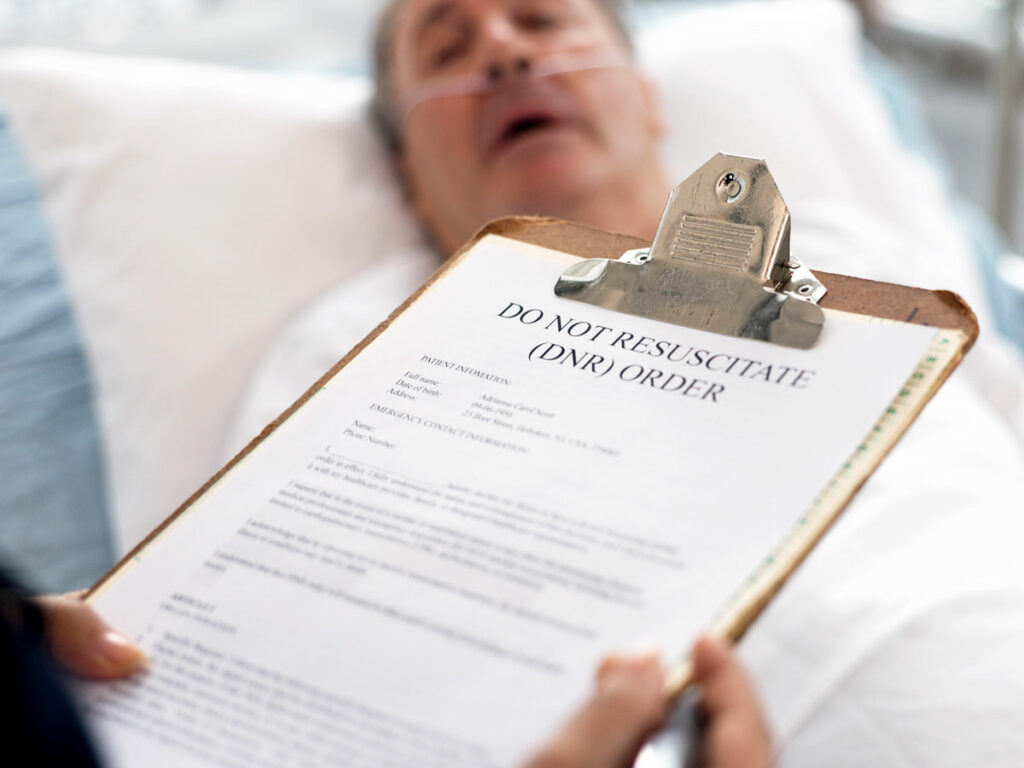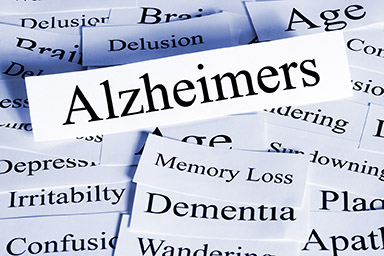From living wills to DNR and DNI orders, learn about your options for advance healthcare directives and how to establish them.
Thinking about your preferences for end-of-life care or what your wishes would be if a medical crisis arises is certainly no easy task. But not having a plan before such a time should come can make an already painful circumstance even more stressful for both you and your loved ones.
That’s why people choose to have advance directives or instructions for how they would like to receive care when they’re too ill or hurt to express their desires. These documents can ease the burden on your family by allowing them to honor your wishes. They include do-not-resuscitate (DNR) and do-not-intubate (DNI) orders.
Read on to learn more about advance directives, how and why people choose them, and how to go about establishing your own.
Are you or a loved one living with a chronic or terminal illness?
The Sage Family of Companies is here to help.
Are you or a loved one living with achronic or terminal illness?
The Sage Family of Companies is here to help.
What is an Advance Directive?
Advance directives are legal documents that state your decisions about how you would like to receive end-of-life care ahead of time. They offer a way to let your family and healthcare providers know your wishes to avoid any confusion if you’re unable to communicate during a medical crisis.
Advance healthcare directives can be beneficial during a number of difficult circumstances, such as if you’re terminally ill, are in an accident, are seriously injured, are in a coma, or have dementia. The two most common healthcare advance directives are a living will and healthcare power of attorney.
Living Will
A living will is a legal document that spells out how you wish to be treated if you’re unable to express your decisions at the time of a medical emergency. You can provide instructions for your doctors about which emergency treatments you want, which to avoid, and under what circumstances each applies.
Healthcare Power of Attorney
A healthcare power of attorney is a legal document that names a healthcare proxy, or the person you elect to make treatment decisions for you if you are unable to make them yourself. Other names for a proxy include agent, surrogate, and representative. This person is often a loved one who should be familiar with your wishes. Learn more about choosing a Health Care Proxy here.
You can use a healthcare power of attorney in addition to or instead of a living will. This puts a plan in place in case of an unplanned healthcare crisis, such as a car accident or fall.
Note that a living will and healthcare power of attorney are living documents that you can review and change as time goes on or your life circumstances change.
Other examples of advance care planning include do-not-resuscitate and do-not-intubate orders.
What Is a DNR Order?
A DNR, or do-not-resuscitate, order is a legal document signed by you and your doctor that instructs emergency responders or other healthcare providers that you don’t wish to receive cardiopulmonary resuscitation (CPR) if you stop breathing or your heart stops beating.
CPR treatment may involve:
- Mouth-to-mouth breathing and chest compressions
- Defibrillation, or electric shock to re-start the heart
- Intravenous medications meant to get the heart beating again
- Breathing tubes to keep the airways open
A do-not-resuscitate order doesn’t mean “do not treat,” but only that CPR won’t be administered. It doesn’t provide instructions for other treatments, including pain medications and nutrition.
What Is a DNI Order?
A DNI, or do-not-intubate, order is a legal document stating that you don’t wish to be intubated, or have a breathing tube placed in your airway if your breathing has stopped. This breathing tube can be connected to a ventilator, which is sometimes referred to as a “life support machine.”
Some people choose to avoid intubation because it can become a long-term treatment, where the tube isn’t removed after the emergency has passed. You may decide you don’t want to be on a breathing tube long-term.

When and Why People Have Advance Directives
Choosing whether or not you want a DNR and/or a do-not-intubate order requires some thought and reflection on your values. Many people elect to have advanced healthcare directives when they’re older in age, have a terminal illness, or have advanced chronic disease. But while it’s common for people in these circumstances to establish advance directives, anyone can do so at any time.
You may elect to have advance directives as a form of preparation in case of a medical crisis or emergency like an accident, injury, or unexpected illness. They’re a way to be proactive and take control of your care by expressing your wishes should the unthinkable happen.
In addition to having your wishes honored, do-not-resuscitate and do-not-intubate directives also prevent confusion and ease the stress on your loved ones if a time comes when you’re no longer able to communicate your healthcare decisions.
Are you or a loved one living with a chronic or terminal illness?
The Sage Family of Companies is here to help.
Are you or a loved one living with achronic or terminal illness?
The Sage Family of Companies is here to help.
Do I Have to Have Advance Directives?
You don’t have to have advance directives. However, if you don’t, it’s important to know what will happen.
If you’re unable to communicate your medical decisions and you don’t have advance medical directives, the laws of your state will determine who should make these calls on your behalf. Typically, this is your spouse, parents, or children if they’re adults.
Note that if you and your partner are unmarried and you’ve not listed them as a healthcare proxy, they may not be able to make your healthcare decisions. If you don’t have a spouse or family members available, in some states, a close friend may be able to step in, while others may assign a physician to make decisions on your behalf.
How to Establish DNR and DNI Orders
Establishing advanced directives like DNR and do-not-intubate orders is relatively easy and comes with little to no cost. Before making a final decision, it’s a good idea to talk with your doctor. If you’ve decided you’d like to proceed, you’ll need to fill out the appropriate DNI or DNR forms.
To locate advance directive forms in your state, consider contacting your State Attorney General’s office, your local area agency on aging, or if you’re a veteran, your local veteran’s affair office.
If you haven’t yet established advanced directives and are currently hospitalized, talk to your doctor about your wishes. They can add a DNR or DNI order to your file at the hospital.
Can You Change or Reverse DNR and DNI Orders?
You can change or reverse your DNR and DNI orders at any time. If you wish to do so, talk to your loved ones so they’re aware of your decision. You should also speak to your doctor, who will be required to remove these orders from your medical file.
Frequently Asked Questions
Here are answers to some of the most frequently asked questions about do-not-resuscitate (DNR) and do-not-intubate (DNI) advance directives.
What Should Be Included in an Advance Directive?
Advance directives are legal documents that spell out your goals and wishes for healthcare at a time when you’re not able to communicate them yourself. They should include your values, preferred outcomes, and instructions about the care you wish to receive at the end of life or during a medical emergency.
You can also appoint a loved one in an advance directive, to make these decisions for you in a situation where you’re not able to make them yourself. This is called a healthcare proxy.
Why Would You Want a Do Not Resuscitate Order?
Cardiopulmonary resuscitation, or CPR, can involve several techniques not always seen in the movies, including chest compressions, electric shocks to start the heart, breathing tubes, and intravenous medications.
These treatments can come with a number of serious side effects, including brain damage, heart damage, internal bleeding, broken ribs, and organ damage. For some people, the risks don’t outweigh the benefits. Others may choose a do-not-intubate or do-not-resuscitate order because they don’t want to be on life support at the end of their life.
Summary
Advance planning like a living will, healthcare power of attorney, and DNI and DNR orders are ways to be proactive and make your wishes known should you find yourself in a situation where you’re no longer able to communicate your decisions.
It’s a good idea to take some time to reflect on your values and talk with your loved ones and doctors before deciding to take action to establish your advance directives. Once you’re ready, be sure to complete the appropriate forms, and remember that you can change or reverse healthcare directives at any time.
References
Advance Care Planning: Advance Directives for Health Care [2022].
Power of Attorney [2022].
Do-not-resuscitate order [2022].






